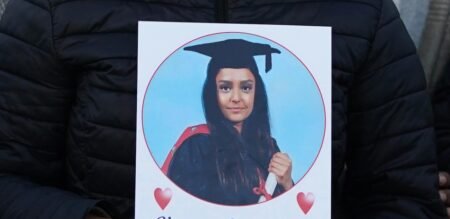Thanks to Oskar Picht, millions are made to see the light who live in darkness. Picht invented the Braille letter-writing machine. This equipment helped teach and communicate with the blind. We will only discuss Germany because of the word limit. He has a kind heart, inventive mind, and unrelenting willpower. His story connects the dots between family, invention, and social legacy.
Family Background and Early Life
Oskar Picht was born in Pasewalk, Germany, on 27 May 1871, the son of Wilhelm (a master baker) and Hermine, an industrious and mission-oriented couple. Oskar grew up at Marktstrasse 3, a place that was destroyed in World War II. His upbringing was at once modest and disciplined. It helped him build resilience and learn empathy.
He got an education from the town’s schools, and from there he went to the state teacher training college at Pölitz (1886-1891). Even as a boy, Picht had a reputation for his ability to see, feel, and want to teach everybody.
Teaching Career and Awakening to Blind Education
Oskar graduated and began working as a teacher in Marienthal and Bahn in Greifenhagen. This was an important period in his life and one that influenced his devotion to those in need. Picht’s sensitivity to every student differentiated him because he paid attention to the barriers that others overlooked.
In Berlin-Steglitz, he went to the State Institute for the Blind from 1897–1899 due to his philosophical and social impulses.
Oskar engaged with the lives of visually impaired students and found out how they struggled to write due to old braille writing tools.
Creating the Braille Typewriter: A Major Breakthrough in Accessibility
Oskar Picht’s celebrated breakthrough was the Braille typewriter, patented in 1901 after years of experiments. While watching blind students struggle with a stylus and stencil, Picht came up with the idea of a machine that would make writing more universal. A machine that just required finger skill and would permit great speed, accuracy and independence doing it.
He made a machine that had six keys, just like the Braille system, that helped write words quite fast. By 1899, he invented Germany’s first usable sheet-fed braille machine. By 1932, nine models that he had refined were registered.
Picht won a gold medal at the International Typewriter Exhibition held in Venice (1907), earning wide recognition and fame for this invention.
Expanding Innovation: Beyond the Typewriter
Oskar’s inventive spirit soared beyond the typewriter. He created:
- German Braille Stenography Machine (circa 1910), using paper strips for rapid, professional note-taking.
- Braille Strip Recorder, aiding teaching and administration.
- Advancements that improved literacy, professional independence, and social inclusion for blind individuals.
His technical mastery inspired similar devices in schools and homes worldwide, broadening the horizons for generations of people who are visually impaired.
Leadership in Blind Education and Advocacy
Picht became director of the Provincial Institute for the Blind in Bromberg (1910–1912) and later, the State Institute for the Blind in Berlin-Steglitz (1920–1933). These leadership roles positioned him as the principal architect of modern blind education, shaping policies and curricula.
Not simply an inventor, Picht was a tireless advocate:
- In 1924, he delivered Germany’s first radio lecture about blindness, reaching a national audience and raising public awareness.
- He produced the trailblazing documentary Our Blind and Their World, putting the realities of disability into popular culture.
Personal Life and Relationships
Oskar married Margarete Charlotte Conrad in 1902, and together they raised three children in Berlin-Steglitz. Family was Oskar’s refuge, grounding him amidst professional innovation and the storms of war and change.
After retirement, he moved briefly to the Potsdam-Rehbrücke blind home at the end of 1944, passing away on 15 August 1945, aged 74. His resting place in Nuthetal bears an honorary gravestone, marking the legacy of a humanitarian visionary.
Achievements and Recognition
Picht’s work was recognised widely:
- Gold Medal: International Typewriter Exhibition (1907)
- Cross of Merit for War Blind Aid (1917)
- Multiple utility model registrations ensured his designs reached those in need.
In 2024, Google immortalised him with a commemorative Google Doodle, reaffirming his global impact.
His inventions formed the blueprint for today’s braille typewriters, which are still found in schools, museums, and homes, continuing to transform lives.
Legacy: Social Impact and Enduring Relevance
Oskar Picht’s legacy is measured not in wealth, but in empowerment. His typewriters liberated generations from illiteracy and isolation, allowing the blind fuller access to education, careers, and independent living.
Picht’s achievements fostered equal opportunity at a time when disability often led to exclusion. His tireless innovation made society more accessible, reminding us of the power of compassionate invention.
Net Worth and Personal Wealth
There is no verifiable public information on Oskar Picht’s net worth. He devoted his life to public good rather than profit, prioritising human dignity and equal access over personal financial gain.
Controversies and Historical Challenges
Picht’s life spanned an era of turbulence, including two World Wars and social upheaval. While he avoided public controversies, he faced challenges: funding for innovations, recognition in a society slow to embrace disability rights, and the loss of his own childhood home to the ravages of war.
FAQs About Oskar Picht
Who was Oskar Picht?
Oskar Picht was a German educator and inventor, best known for creating the first Braille typewriter for the blind.
When and where was he born?
He was born on 27 May 1871 in Pasewalk, Germany.
What inspired his invention?
Picht was moved by the difficulties blind students faced with manual braille writing, so he aimed to create a practical and efficient machine for them.
What did he invent?
He pioneered Germany’s first sheet-fed Braille typewriter, the Braille stenography machine, and other devices for accessible technology.
Which awards did Oskar Picht win?
He was honoured with the Gold Medal at the International Typewriter Exhibition (1907) and other local recognitions.
Was Oskar Picht wealthy?
No verifiable information on his net worth exists; he prioritised the public good over wealth.
What was his personal life like?
He married Margarete Charlotte Conrad and had three children; he balanced innovation with family life.
Are there controversies related to his career?
Picht did not face prominent controversies, but navigated war and turbulence affecting his personal and professional life.
How is he honoured today?
Modern braille typewriters are based on his designs, and he was commemorated with a Google Doodle in 2024.
Where can his inventions be found?
They are in educational institutions, museums, and collections worldwide.
What is his greatest legacy?
Empowering the blind with literacy, independence, and equal opportunities.










